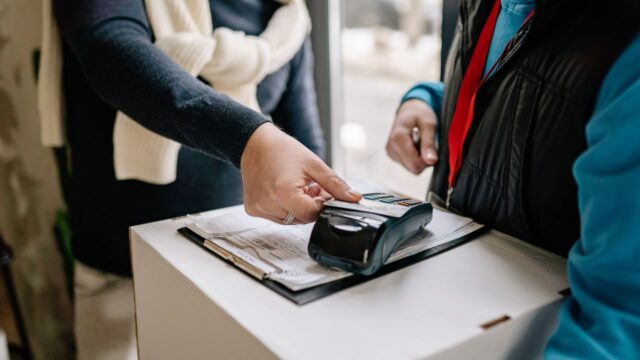
When we talk about a cashless society, we usually think about the convenience of not having to carry cash around, the ease of making transactions with a tap of a card, or the enhanced security of digital payments. While these benefits are often highlighted, we rarely hear about the potential risks and dangers of a cashless society. In this post, we’ll discuss some of the hidden dangers you may not have considered.
Exclusion of marginalized communities
One of the main concerns about a cashless society is that it can exclude people who don’t have access to digital payment methods.
In many parts of the world, people still rely on cash as their primary means of payment, either because they don’t have bank accounts or because they can’t afford the fees associated with digital payments.
Moving towards a cashless society could lead to exclusion of marginalized communities, who may find it harder to participate in the economy.
Cybersecurity risks
Another issue with a cashless society is the increased cybersecurity risks associated with digital payments. Fraud, hacking, identity theft, and malware attacks are all potential threats that could compromise our financial security and privacy.
While some may argue that digital payments are safer than carrying cash, the truth is that we’re only as secure as the weakest link in the payment chain. With more points of failure in a digital payment system, the likelihood of a security breach is higher.
Dependence on technology
As we become more reliant on digital payments, we’re also becoming more dependent on technology. This can be problematic in cases where we face power outages, network failures, or system crashes.
Without a backup alternative, we may find ourselves unable to buy groceries, pay bills, or make transactions. Moreover, our personal data is at risk of being exploited or manipulated by those who have access to the digital payment infrastructure.
Privacy concerns
Perhaps the most pressing concern about a cashless society is the threat to our privacy. When we use digital payments, we leave a digital trail that can be tracked, analyzed, and exploited by advertisers, financial institutions, governments, and hackers.
This means that our financial behavior, preferences, and transactions are no longer private, and we’re exposed to a wider range of risks, from data breaches to targeted advertising.
Consumer protection
Finally, a cashless society could also expose consumers to a lack of protection in case of disputes, fraud, or errors. While credit card companies and banks have dispute resolution mechanisms in place, these mechanisms may not provide the same level of protection as cash transactions. Moreover, if our financial data is compromised, it could take months or even years to resolve the issue with little recourse.
In summary, a cashless society may seem like a futuristic and convenient way of making payments, but it comes with hidden dangers that we need to be aware of. Whether it’s exclusion of marginalized communities, cybersecurity risks, dependence on technology, privacy concerns, or lack of consumer protection, each of these risks can have serious repercussions for our financial security and well-being. That’s why it’s important to have an open and honest discussion about the risks and benefits of a cashless society, and to devise strategies to mitigate the potential dangers.


































